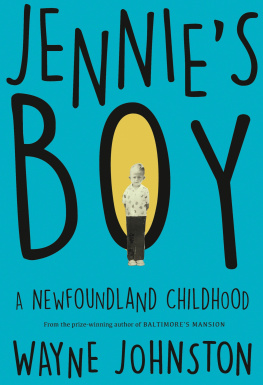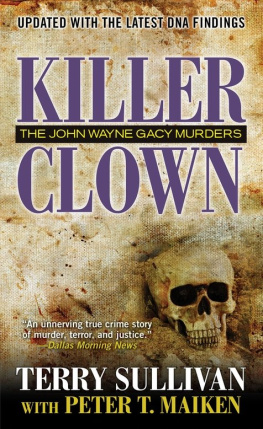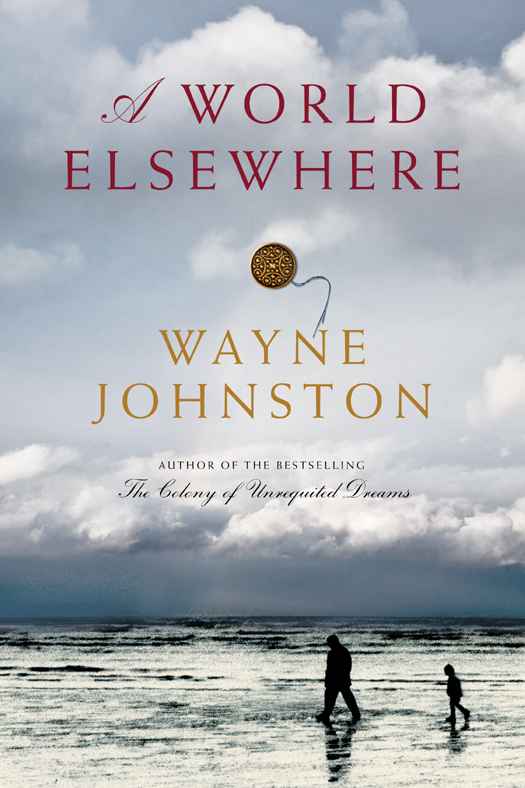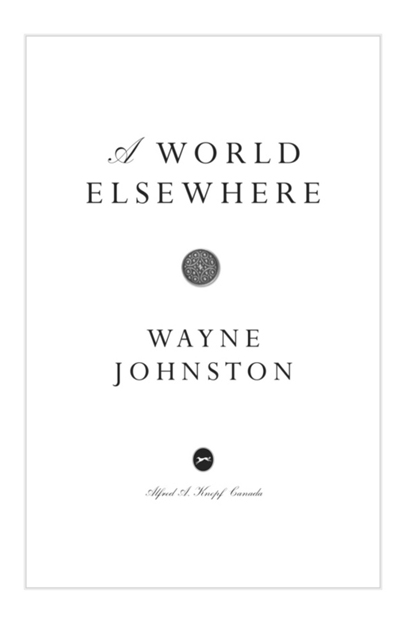Also by Wayne Johnston
THE STORY OF BOBBY OMALLEY
THE TIME OF THEIR LIVES
THE DIVINE RYANS
HUMAN AMUSEMENTS
THE COLONY OF UNREQUITED DREAMS
BALTIMORES MANSION
THE NAVIGATOR OF NEW YORK
THE CUSTODIAN OF PARADISE
PUBLISHED BY ALFRED A. KNOPF CANADA
Copyright 2011 1310945 Ontario Inc.
All rights reserved under International and Pan-American Copyright Conventions. No part of this book may be reproduced in any form or by any electronic or mechanical means, including information storage and retrieval systems, without permission in writing from the publisher, except by a reviewer, who may quote brief passages in a review. Published in 2011 by Alfred A. Knopf Canada, a division of Random House of Canada Limited, Toronto. Distributed in Canada by Random House of Canada Limited.
www.randomhouse.ca
Knopf Canada and colophon are registered trademarks.
This book is a work of fiction. Names, characters, places and incidents either are the product of the authors imagination or are used fictitiously.
Library and Archives Canada Cataloguing in Publication
Johnston, Wayne
A world elsewhere / Wayne Johnston.
eISBN: 978-0-307-39992-2
I. Title.
PS 8569. O 3918 W 67 2011 C 813.54 C 2011-901717-2
Cover Design by Terri Nimmo
Cover images: (figures on beach) Michael Trevillion, (sky) Timbooth2770 | Dreamstime.com, (buttons) Rares Irimie | Dreamstime.com
v3.1
In loving memory of my Mom and Dad:
Jennie Johnston and Arthur Johnston.
Contents
Authors Note
I WAS INSPIRED TO WRITE A World Elsewhere after a series of extended visits to the most fabled palace of the Gilded Age, Biltmore, which took hold of my imagination. The young George Washington Vanderbilt II built his massive house, instantly world famous, not in or near New York or Rhode Island, but in the wilderness of North Carolina in the late 1800s, and I have attempted to recreate its eccentric, enigmatic grandeur in my novel. Many, if not all, its structural details will be recognized by visitors today. Biltmore still stands essentially as it was originally created by two of the greatest architects of its time, Richard Morris Hunt, who died just months after its completion, and Frederick Law Olmsted, who also designed Central Park in Manhattan. It is now a self-supporting tourist estate run by George Vanderbilts great-grandson, William Amherst Cecil.
I have drawn on the historical existence of George Vanderbilt, his ancestors, his wife, Edith, and their only child, their daughter, Cornelia, but none of them are models for their counterparts in A World Elsewhere: the actions, words and thoughts of these counterparts are not those of the Vanderbilts but are fictions. However, since Biltmore would not have existed without George Vanderbilt, I believe it would have been disingenuous of me to wholly alter the family surname of my characters. I have borrowed from a great writer who was also inspired by the Vanderbilts, and called my family the Vanderluydens, after the Vanderbilt-like Van der Luydens of Edith Whartons novel The Age of Innocence. Edith Wharton was a friend of George Vanderbilt, as was Henry James. Both of them visited him and appear as characters in A World Elsewhere as guests at Vanderland, the Biltmore-like house of my book.
Dark Marsh Road
L ANDISH DRUKEN LIVED in the two-room attic of a house near the end of Dark Marsh Road that was in no way remindful of any other place hed ever lived. A mile away, in a twelve-room house, his father lived alone.
Under the terms of what Landish called the Sartorial Charter, his father had let him keep his clothes but had otherwise disowned him. When he was too hungry and sober to sleep, he walked the edge of the marsh in the dark, smoking the last of his cigars, following the road to where it narrowed to a path that led into the woods.
He had gone to Princeton, where father-made men spent father-made fortunes. Now they were back home, learning the modern form of alchemy, the transmutation of sums of money into greater sums of money. Hed told them that this was, at best, all they would ever accomplish. Whereas, hed said, I will write a book that will put in their places everyone who has ever lived. It may take me as long as a month, but I will not falter.
It was five years since hed made the boast and hed yet to write a word that he could resist the urge to burn.
Hed had but one real friend at Princeton, Padgett Vanderluyden, who went by Van. Theyd met while Landish was sitting on one of the benches that ran along both sides of the path that led from the centre of the quad to the steps of Nassau Hall, smoking a cigar under a gauntlet of oak trees from which a steady shower of leaves fell despite the lack of wind. Van had sat down beside him.
Landishs first impressions had been vague onespale, thin, elegantly dressed. He turned and saw his benchmate in profile: a pale, unblemished face, the sort of vein-marbled temples Landish had always associated with fragility and even weakness in men. Removing a cigarette case from inside his coat, the young man opened it and offered it to Landish until he noticed his cigar. His hands shook so badly he almost dropped the case.
Youve chosen the only occupied bench on the quad, Landish said.
The fellow held his cigarette between his third and fourth fingers, pressing his whole palm against his face as he inhaled. His body shook and his lips trembled though the day was unseasonably warm. Landish wondered if he might be ill.
Im Padgett Vanderluyden, he said as he looked away from Landish. Van, I like to be called. And you are Landish Druken. I hope you dont like to go by Lan. That wouldnt do. Van and Lan. He attempted to laugh but wound up coughing smoke out through his nose and mouth.
Landish, the back-of-beyonder who scored unaccountably high grades in all his courses but was not, and was never to be, affiliated with any of the clubs, had been sought out by a Vanderluyden. Vanderluyden. Landish felt like demanding that the fellow prove it by presenting his credentials.
But then Van made the first of several odd admissions: he had stayed up half the night rehearsing what he would say to Landish.
I didnt want to come unarmed. But Ive forgotten everything that I rehearsed.
You stayed up all night preparing to meet me?
Yes, I did.
It was smart of you to choose a battle of wits. If youd used your hands, you might not be nearly so gracious, or conscious, in defeat.
You see? How am I supposed to answer that?
Vans voice quavered so badly that Landish felt a tinge of regret for having spoken to him as he had. He extended his hand and Van shook it.
Van next told him that his sister, Vivvie, had died just shy of the age of two. I had a breakdown over it. Im thought by everyone, including my father, to be inherently given to breaking down. My father once told me that I would be presumed guilty until I was pronounced dead. Here you are now conspicuously sharing a bench with me in front of witnesses.
Guilty of what? Witnesses to what?
Van told him he was joking.
Well, at least you acknowledge having parents. Most of the fellows here never speak of whatever predecess pool they crawled out of.
All night I tried and could not come up with one line as good as that. I am not only not quick-wittedI have no wit at all.









